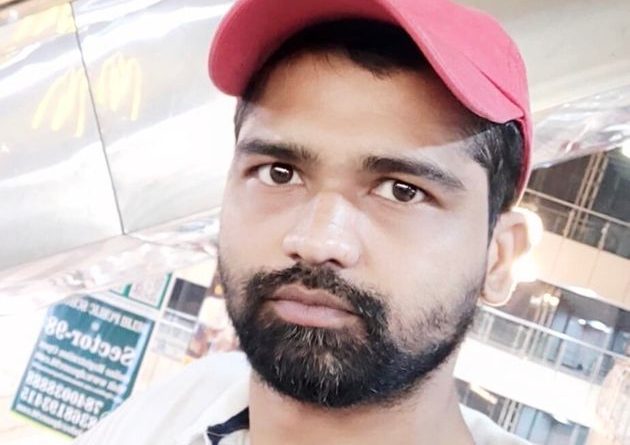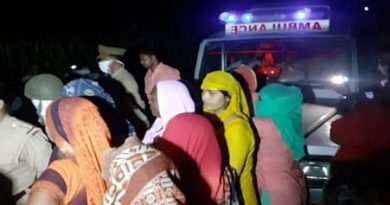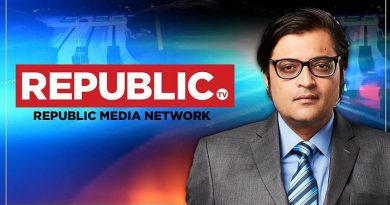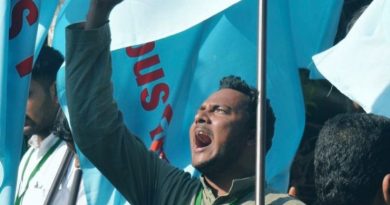| |
|---|
News Desk: The Delhi Police in August booked a Muslim man who allegedly sold a mobile phone SIM card on false identification to a college student under India’s anti-terror law in connection with the Delhi riots and sent him to jail. In building its case against him, the police contradicts its own version of events in the chargesheet in which he is named.

35-year-old Faizan Khan was arrested on 29 July on charges of cheating and forgery after he allegedly used false identification to sell a SIM card to a Jamia Millia Islamia student. But two weeks later, the police booked him under India’s anti-terror law, the Unlawful Activities Prevention Act (UAPA), and for murder under the Indian Penal Code (IPC). He has been in Tihar Jail for more than two months and was denied bail in August.
Khan, an Airtel sales agent, is accused of selling the SIM card to Asif Iqbal Tanha, a 24-year-old Jamia student who, along with other students, activists and critics of the Citizenship Amendment Act (CAA), are the people that the police have blamed for the communal violence in Delhi in February.
More than 50 people died in the riots, most of them Muslim.
“There are no call details or information of conversations between Faizan and Asif Iqbal Tanha. He was never at any site where any violence took place. He was never at any protest,” said Azra Rehman, Khan’s lawyer. “Just because he sold a SIM for some extra pennies, he was put under UAPA.”
Tanha was arrested on 20 May.
Tanha’s lawyer declined to comment. Delhi Police has not responded to request for comment.
In the face of criticism, the Delhi Police has claimed it is conducting an unbiased investigation into the riots, but several media outlets have reported how it has been using unnamed witnesses and chargesheets running into thousands of pages to cast a net that ensnares only the Narendra Modi government’s detractors.
Khan is one of the 21 people arrested under First Information Report (FIR) 59, which says that the anti-CAA protests were a front for planning the worst communal riots in Delhi in a quarter of a century, with former Jawaharlal Nehru University student Umar Khalid as a main accused.
Students and activists in their twenties and thirties, including Safoora Zargar of Jamia Millia Islamia, Devangana Kalita and Natasha Narwal of JNU, have been charged with murder and and terrorism. Most of those arrested in FIR 59, the “conspiracy” FIR of the Delhi riots, are Muslim.
The Delhi Police has said that FIR 59 is just one of 751 FIRs it has filed in the Delhi Riots, but FIR 59, which has yielded a chargesheet of 17,000 pages, is significant because it investigates who was behind the riots.
The Delhi Police in a statement on 16 September said that of the 21 people arrested in FIR 59 so far, Tanha and 14 others have been chargesheeted and summoned for trial, while six, including Khan, are expected to be chargesheeted in due course.
A close reading of Khan’s chargesheet reveals not only does the Delhi Police contradict itself on Khan’s motive for allegedly activating a SIM with false identification, but it also seems to have little clarity on its own version of when this so-called conspiracy to instigate riots was hatched.
Khan’s stunned family says that he was a poor salesman who had no interest in politics and never attended the anti-CAA protests.
“Faizan does not even know the definition of CAA, NRC, and NPR,” said a male relative, speaking on condition of anonymity because he fears a backlash from the police. “He didn’t even go to the protests or talk about these things.”
The police use statements attributed to one Gaurav Kumar Diwakar and two unidentified witnesses to accuse Khan of activating a SIM in December using a fake Aadhaar card of one Abdul Jabbar, a photograph of Diwakar, and his own mobile phone number to receive an OTP. Diwakar is a salesman who worked with Khan at a mobile phone store in Okhla. The police claim Khan gave the SIM to a man sent by Asif Iqbal Tanha a month later, in January, as part of a conspiracy to riot in February.
Defence lawyers have previously said that statements recorded by the Delhi Police in the chargesheet for FIR 59 are falsified and coerced. Several of the statements have the same words and passages.
The disclosure statement attributed to Khan says that he activated the SIM and gave it to the man sent by Tanha to collect it. “Asif Iqbal Tanha made me greedy for money and asked for a SIM on another person’s name,” it says. “I’m sorry, please forgive me.”
Disclosure statements are taken soon after an arrest, and do not have evidentiary value in a trial unless they lead to the discovery of new evidence.
A statement attributed to an unnamed witness with the pseudonym ‘James’ says that Tanha sent the SIM to a meeting of the Jamia Coordination Committee (JCC) in the second week of January, where it was given to Safoora Zargar, a 28-year-old Jamia student who is chargesheeted in the case.
The JCC was set up in mid-December after a brutal crackdown by the Delhi Police on the Jamia campus left several students injured. The police have accused many of its members of having planned the riots.
A statement attributed to Diwakar, a 22-year-old Jio promoter who worked with Khan, says that his father is a vegetable seller and they are poor. The statement says that after Tanha asked Khan for a SIM with false identification in December, Khan asked Diwakar for his photo to activate the SIM. After Diwakar refused, according to this statement, Khan tried convincing him, saying that the SIM was for a “special brother” who was working for the Muslim community, and it would be used to protest against the CAA. The statement attributed to Diwakar says he agreed after Khan paid him Rs 200. A man sent by Tanha, this statement says, collected the SIM in January.
Two days after the statement attributed to Diwakar was made, on 13 August, the police said that there was evidence that Khan was “privy to the conspiracy of unlawful and terrorist activity,” and had forged documents and provided a SIM for this purpose to his co-conspirators.
Three days later, on 16 August, the police recorded a statement attributed to a second unnamed witness with the pseudonym ‘Robot’, whose connection with Khan or the store is not explicitly stated, but at one point refers to “my store”. The statement, which carries redactions, says that Tanha came to the mobile phone store before 13 December and asked for a SIM with false identification, saying that first there would be protests and then riots. Khan, this statement says, said that Tanha is fighting against the CAA and for the security of the Muslim community. A man sent by Tanha, according to this statement, came to collect the SIM in January.
The Delhi Police do not give a specific date for when the SIM was activated and picked up.
“From Robot’s statement it became evident that Faizan Khan had intentionally issued SIM card on fake ID and for this he hatched a conspiracy with Asif Iqbal for assisting Asif Iqbal Tanha in unlawful and terrorist activities,” the Delhi Police says in the chargesheet.
Earlier in the chargesheet, following Khan’s disclosure statement, the Delhi Police says that Khan “acted out of greed” to earn some extra money, but later uses the statements of the two unnamed witnesses to conclude that Khan selling a SIM with false identification had furthered the conspiracy to instigate riots in Delhi.
The second discrepancy is regarding the timing of the so-called conspiracy — the SIM card was sold in December — before 13 December according to one unnamed witness, but the police’s own, much-disputed version of events in two other chargesheets claims that the meeting where the plan for the riots was hatched took place only in January.
The Delhi Police in the chargesheets in two different FIRs of the Delhi Riots said that the plot for a “big blast” to humiliate the Modi government when U.S. President Donald Trump visited India on 24 and 25 February was hatched by political activist Umar Khalid, businessman and social activist Khalid Saifi and suspended Aam Aadmi Party (AAP) councillor Tahir Hussain at a meeting on 8 January at Popular Front of India (PFI) office at Shaheen Bagh. The Quint has pointed out that there was no news of Trump’s visit to India till 13 January, five days after this alleged meeting took place.
In this chargesheet under FIR 59, the Delhi Police claim that students and activists were considering chakka jams (road blocks) as early as 7 December, even before the CAA became law. On the meeting for planning a “big blast,” which previous FIRs say was held on 8 January, the police in FIR 59 still claim the three men met that day, but without offering any explanation for the change, they drop the reference for Trump’s visit. They now say that the alleged conspirators heard about Trump’s visit on 14 January from television news, learnt about his schedule for the trip on 11 February, and on the intervening night of 16-17 February, they hatched a plot to carry out chakka jams and adopt violent measures to escalate the protest.
Even if one was to accept the Delhi Police’s much-disputed timeline for this so-called conspiracy for violent rioting, it was still not planned in the first two weeks of December, which is when Khan allegedly activated the SIM on false identification for Tanha.
The police’s own timeline on when the riot was planned would also render false the statement attributed to ‘Robot’ that said Tanha came to the store before 13 December and told Khan that protests followed by riots were being planned.
Azra Rehman, Khan’s lawyer, said that once he had handed over the SIM, he could not be held responsible for any messages sent from it.
“This is a complete abuse of UAPA,” she said.
The statement attributed to Diwakar, the 22-year-old salesman, said that he had given his photo for activating SIMs with fake ID two other times, suggesting this was not only done for Tanha.
In fact, phone company promoters issuing SIMs on false identification is a menace in the national capital, and the Delhi Police has warned against it.
Khan’s male relative, who spoke on the condition of anonymity, said that promoters like Khan resorted to this tactic because they have a quota of SIMs they need to sell.
“It is a normal practice that a lot of promoters use. There is a lot of pressure on him to meet the targets,” he said. “He did not attend any protests for even a single day.”
On 29 July, the Delhi Police had booked Khan for crimes under the IPC—cheating and dishonesty, forgery, and using as genuine a forged document—and he was sent to Tihar jail on 2 August.
Two weeks later, on 13 August, the police booked him for murder and terrorism.
Khan was denied bail by Additional Sessions Judge Amitabh Rawat of the Karkardooma district court on 28 August. His lawyer Azra Rehman has moved the Delhi High Court. The next hearing is on 7 October.
“We were informed during the bail hearing that he had been booked under the UAPA,” said Rehman.
In the disclosure statement attributed to him, Khan says that he left school after Class X because his family is poor and he had to start working.
Khan’s family said there were few opportunities in their hometown of Pilibhit in Uttar Pradesh, and that is why he went in search of work to Delhi two years ago.
He used to earn around Rs 14,000 a month, paid Rs 3,500 in rent for a room he shared with three other men, and sent money home to his mother, an ageing grandmother, two younger sisters and a brother who tries to get some work as a carpenter. His mother’s poor health has further deteriorated after news of his arrest.
His father suffered from paralysis and a heart condition. He passed away in 2019.
His male relative said that in July, the police would summon Khan for interrogation almost every day, and keep him waiting on most days.
The police, this relative said, pressured him and the store owner to turn on each other.
“They mentally tortured him. They would call him at 10 in morning and release him at 11 in the night,” he said. “On most days, they would not even ask him anything. Just make him stand outside and wait. Just a few times, they said, ‘do you have something to add?’.”
Shubra Khan, his 25-year-old sister, said that Khan was not part of any protest against the CAA or conspiracy to instigate riots in the national capital.
Sobbing over a phone call from Pilibhit, his sister said, “My brother is a good man. He is not involved in anything like they are saying. We don’t know what is happening. My brother was surviving and keeping us alive. We won’t survive without him.”




